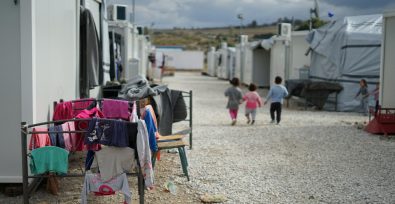Criminals earn over $150 billion in illegal profits from human trafficking each year. Unsurprisingly, a large chunk of this money ends up in the world’s financial institutions.
But in recent years, the United Nations has worked with banks to transform them from unwitting accomplices in human trafficking to allies against the crime.
The UN just formed the Financial Sector Commission on Modern Slavery and Human Trafficking — headed up by Dr. James Cockayne, director of the Centre for Policy Research at United Nations University.
“Over the last couple of years, one of the key game changers that has emerged is the engagement of the financial sector, both public and private,” explained Dr. Cockayne.
Notably, many of the tools that banks already have to detect money laundering can may also be helpful to track down human traffickers.
PYMNTS reports:
Many of the businesses that are involved in human trafficking may appear legitimate, but they are actually fronts used to launder money and support illegal activities. It can be challenging for FIs and law enforcement agencies to identify these businesses, analyze their ledgers and unmask illicit practices, which can be embedded deep in their supply chain.
Many of the tools that banks already use, such as fraud protection, customer service and advertising, can be used to fight slavery. That includes the plethora of financial data that banks have acquired in recent years, along with the tools used to interpret that data, like artificial intelligence (AI) and machine learning (ML).
AI and ML can be used to find patterns in large sets of data to identify fraud or a cyberattack, but they can also be taught the patterns indicative of human trafficking.
“I think there are two very promising developments we already see in the financial sector,” Dr. Cockayne said. “One is the use of big data to understand how the patterns of engagement differ between wholly legitimate businesses and those that are hiding this kind of problem.”
Dr. Cockayne added that banks have begun to see that fighting human trafficking can both create value for their business and ensure respect for human rights.
Yet as financial institutions step up to tackle trafficking profits, they will need to closely collaborate with other stakeholders, including law enforcement, government, and civil society.
“Financial sector actors clearly have incredibly valuable data, but it might be only one or two pieces of the puzzle. [FIs] actually need to work with other actors to decode that data and understand which of these businesses are a risk, not only to people, but to the financial sector businesses themselves,” he said.








Freedom United is interested in hearing from our community and welcomes relevant, informed comments, advice, and insights that advance the conversation around our campaigns and advocacy. We value inclusivity and respect within our community. To be approved, your comments should be civil.